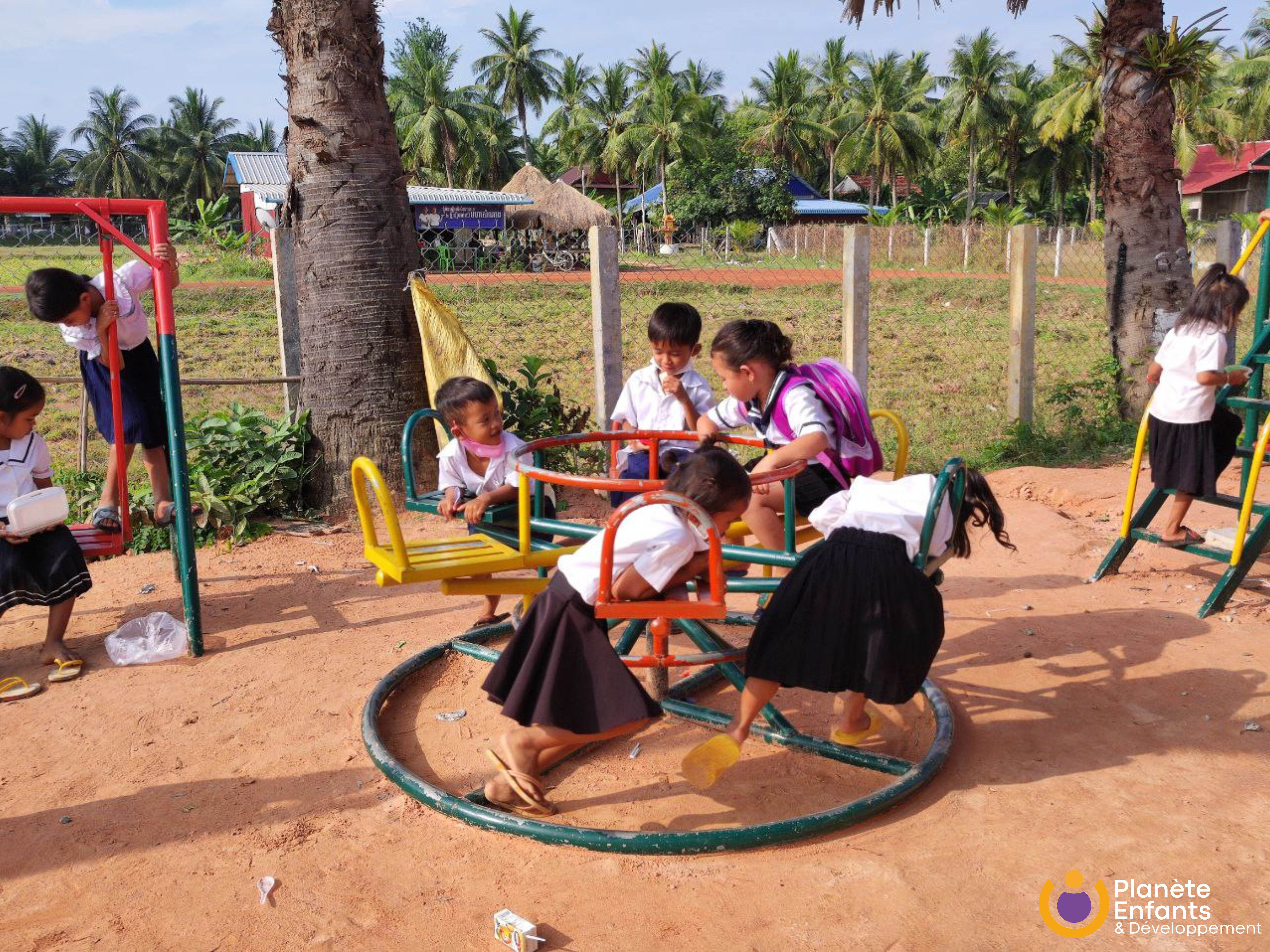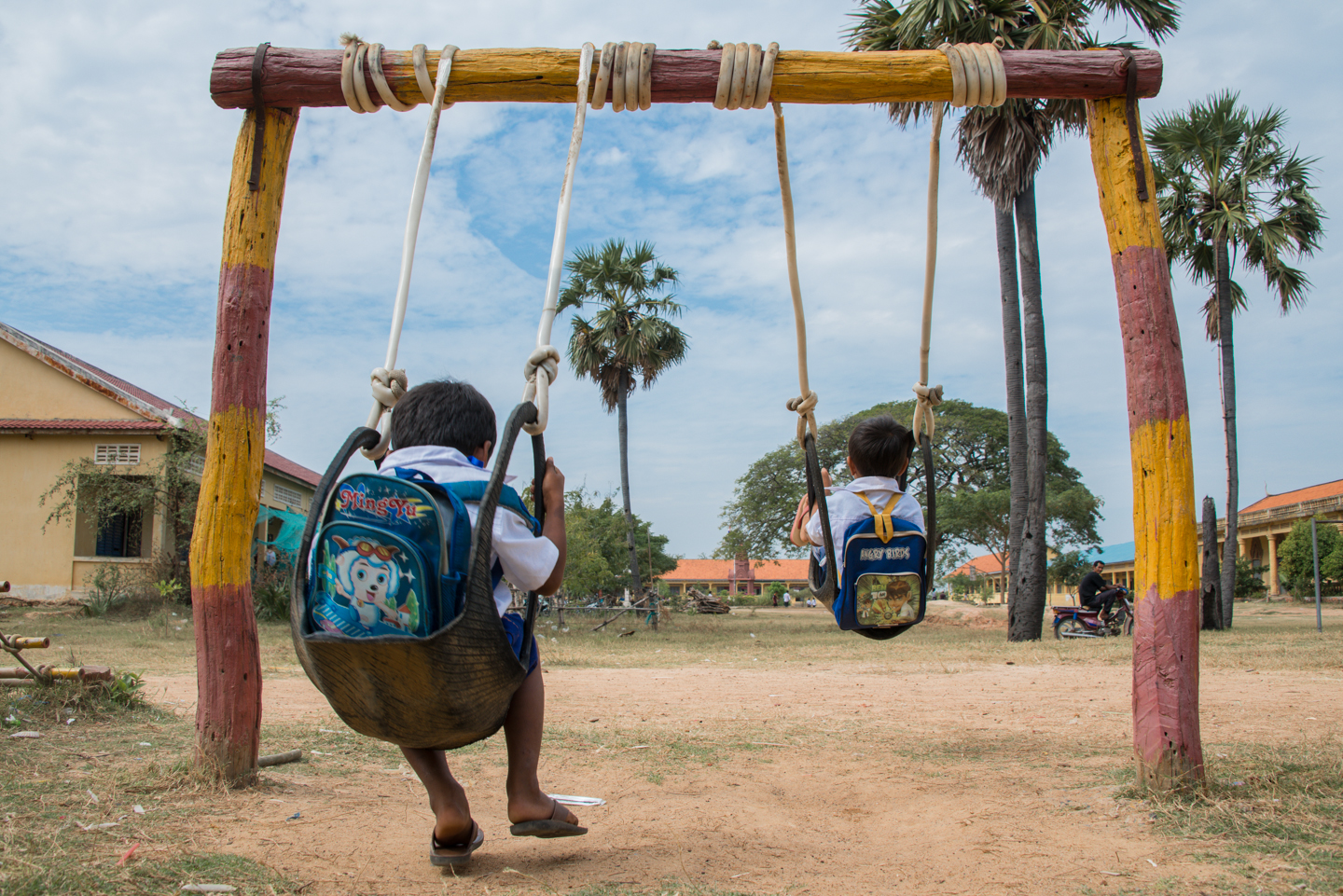
The Cambodian government has demonstrated a long-standing commitment to ECCD, adopting framework laws and drafting several national policies and action plans. These have been implemented through various programs; however, many difficulties and challenges still remain.
Historical Milestones
State Preschools were the first formal educational services provided to young children across Cambodia. Teachers in State Preschools are required to complete a two-year pre-service training program. However, due to budgetary and human resource constraints, the availability of State Preschools remains limited and is primarily concentrated in urban and peri-urban areas.
To expand access and reach more children, the government chose to invest in more cost-effective alternatives—Community-Based Preschools (CPS). This model was first developed in 1997 by the NGOs Planète Enfants & Développement (PE&D), Plan International, and Save the Children, with support from UNICEF. It was later scaled up nationwide.
By 2019, there were 2,970 Community Preschools operating in Cambodia, reaching 69,914 children, including 36,073 girls. Teaching in CPS is typically conducted by community members, 98% of whom are women, who have received shorter training than State Preschool teachers. While the pedagogy used is similar to that promoted in State Preschools, the learning environment often differs, as CPS may operate in informal settings such as pagoda compounds or villagers' homes.
To be formally recognized by the Ministry of Education, Youth and Sport (MoEYS) and receive funding comparable to State Preschools, CPS must meet minimum standards defined by the sub-decree on CPS management.
State Preschools were the first formal educational services provided to young children across Cambodia. Teachers in State Preschools are required to complete a two-year pre-service training program. However, due to budgetary and human resource constraints, the availability of State Preschools remains limited and is primarily concentrated in urban and peri-urban areas.
To expand access and reach more children, the government chose to invest in more cost-effective alternatives—Community-Based Preschools (CPS). This model was first developed in 1997 by the NGOs Planète Enfants & Développement (PE&D), Plan International, and Save the Children, with support from UNICEF. It was later scaled up nationwide.
By 2019, there were 2,970 Community Preschools operating in Cambodia, reaching 69,914 children, including 36,073 girls. Teaching in CPS is typically conducted by community members, 98% of whom are women, who have received shorter training than State Preschool teachers. While the pedagogy used is similar to that promoted in State Preschools, the learning environment often differs, as CPS may operate in informal settings such as pagoda compounds or villagers' homes.
To be formally recognized by the Ministry of Education, Youth and Sport (MoEYS) and receive funding comparable to State Preschools, CPS must meet minimum standards defined by the sub-decree on CPS management.
Legal Framework
Education is a fundamental component of Early Childhood Care and Development (ECCD). In Cambodia, this right is protected under the Constitution. Article 48 states: “The State shall assure the protection of children’s rights as enshrined in the Convention on the Rights of the Child, especially the right to life, the right to education, the right to protection during wartime, and the right to protection from economic or sexual exploitation.”
Early childcare and early childhood education are defined by law in Royal Kram No. NS/RKM/1207/032 on Education, dated 8 December 2007 (Articles 16–17), as services provided for children aged 0 to 6 years. Early childhood education is not considered a formal level of education but rather a preparatory stage for entering the school system.
Education is a fundamental component of Early Childhood Care and Development (ECCD). In Cambodia, this right is protected under the Constitution. Article 48 states: “The State shall assure the protection of children’s rights as enshrined in the Convention on the Rights of the Child, especially the right to life, the right to education, the right to protection during wartime, and the right to protection from economic or sexual exploitation.”
Early childcare and early childhood education are defined by law in Royal Kram No. NS/RKM/1207/032 on Education, dated 8 December 2007 (Articles 16–17), as services provided for children aged 0 to 6 years. Early childhood education is not considered a formal level of education but rather a preparatory stage for entering the school system.
.jpg)

